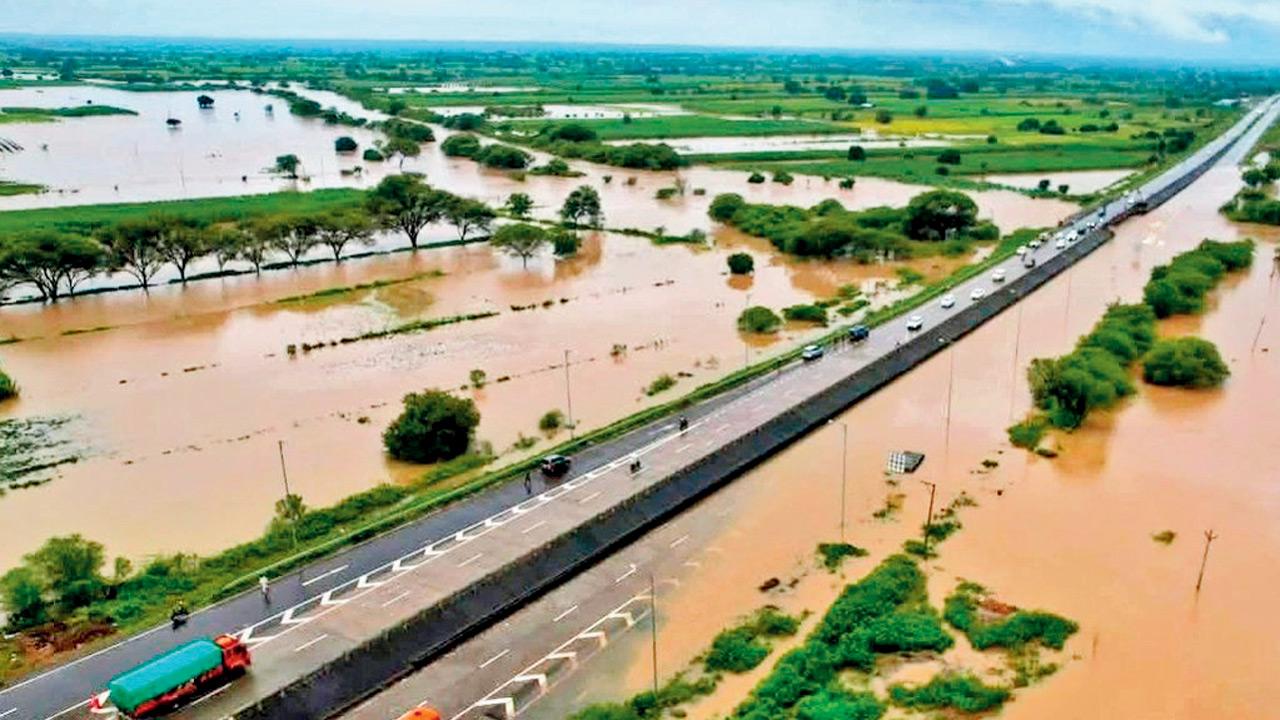While the government has temporarily halted loan recovery, this relief cannot be extended for years or indefinitely unless banks are directed to restructure loans or defer recovery for a longer period. Soon, farmers will have to start repaying their credit or risk being tagged as defaulters. This status would shut the doors to fresh loans, leaving many farmers unable to purchase seeds, fertilizers, and pesticides for the upcoming crop.
In such a dire situation, there will be no sowing, no harvest, and consequently, no income. The farming community, already struggling under a severe crisis, will be pushed further into debt and deeper trouble. This clearly indicates the urgent need for immediate relief to help farmers get back on their feet.
A loan waiver has become a survival necessity for two main reasons: first, recent rains have washed away crops; and second, the ruling Mahayuti alliance—comprising the BJP, Eknath Shinde-led Shiv Sena, and Ajit Pawar-headed NCP—promised during the 2024 assembly campaign to wipe out all farmers’ loan books. However, over eight months after coming to power, the alliance has so far delayed implementing this loan waiver.
Chief Minister Devendra Fadnavis and his deputies, Shinde and Pawar, repeatedly assure that the promise has not been forgotten and that the waiver will be implemented at the appropriate time—though that time has yet to arrive. Given the current crisis of “wet drought,” now would be the ideal moment to fulfill this promise.
### Is a Loan Waiver the Right Solution?
Despite the promise and urgency, many experts believe that a loan waiver may not provide immediate relief to farmers. In reality, waivers tend to benefit banks more than the farmers themselves. The waiver money goes directly to lenders, helping financial institutions recover dues, but does little to solve the underlying distress faced by farmers. It does not put fresh capital into the hands of those who desperately need funds to cultivate the upcoming crop, typically sown in winter and harvested during March and April. Without such capital, the cycle of distress is bound to continue.
### Climate Change and Farming Risks
Another major challenge is the unpredictability of weather. Due to climate change, delayed, excessive, or insufficient monsoon spells have made farming increasingly risky. State government records reveal that over the past nine years, 519 lakh hectares of farmland across Maharashtra have been damaged due to unseasonal rains. Even Chief Minister Fadnavis recently acknowledged the toll climate change is taking on the agricultural sector during his visit to flood-affected areas in Marathwada and Solapur.
### Historical Context of Loan Waivers
Loan waivers are not new to Indian politics. In 2008, the UPA government announced a nationwide loan waiver scheme which reportedly benefited 70 lakh farmers from Maharashtra. In 2017, then-CM Devendra Fadnavis implemented a ₹34,000 crore waiver aimed at bailing out around 67 lakh debt-ridden farmers. Two and a half years later, in 2020, CM Uddhav Thackeray followed up with another waiver.
Agricultural scientist M.S. Swaminathan famously warned, “If agriculture goes wrong, nothing else will have a chance to go right.” This emphasizes that farmers need not just financial support, but also policy reforms and better access to resources.
### The Need for a Well-Planned Financial Package
A well-planned, sizable financial package could make a real difference. Direct support to farmers will ensure they receive immediate assistance to regain lost ground and attempt a comeback from the current crisis. Failure by the government to meet these basic needs could trigger severe consequences, such as rising debt levels, increased prices for essential commodities, and inflation.
Additionally, inadequate support may force many farmers to migrate to cities, potentially leading to social unrest. The human cost is stark: not all, but many farmer suicides are linked to financial distress. The latest National Crime Records Bureau (NCRB) report shows that in 2023, 10,786 farmers and agricultural workers took their own lives, with Maharashtra accounting for nearly 39% of these tragic deaths. In 2025 alone, 767 farmers died by suicide in Maharashtra, highlighting a deepening crisis in the sector.
### Political Assurances and Immediate Relief
Aware of this gravity, Eknath Shinde, in his recent Dussehra rally speech, promised every possible governmental and party support to pull farmers out of the crisis. Besides offering assurances, Shinde even pleaded with farmers not to take extreme steps.
Currently, as interim relief, farmers are being provided with ₹10,000 in cash along with 10 kg each of rice and wheat. However, what farmers truly need is not temporary aid, but sizeable and swift relief to survive today, accompanied by comprehensive loan waiver packages to help them rebuild sustainably.
### Conclusion
Without substantial and timely intervention, farmers will remain trapped in a vicious cycle of debt and distress. The future of Maharashtra’s agriculture and the livelihoods of millions depend on proactive, sustained support that goes beyond temporary fixes. The government must act decisively to translate promises into concrete actions before it is too late.
https://www.mid-day.com/news/opinion/article/you-cant-waive-a-promise-23597114
